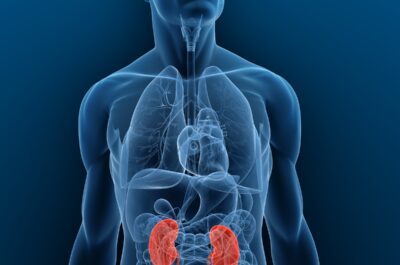 A study just released in the Journal of Family Medicine has shown a direct correlation between depression and increased risk of hypoglycemic episodes.[1] This is extremely important for several reasons. Depression is not uncommon in people suffering from diabetes and treatment can become difficult with a diabetic patient suffering with depression as severe hypoglycemia is often present. People with depression can have a 40% higher risk of developing low blood sugar according to the study.
A study just released in the Journal of Family Medicine has shown a direct correlation between depression and increased risk of hypoglycemic episodes.[1] This is extremely important for several reasons. Depression is not uncommon in people suffering from diabetes and treatment can become difficult with a diabetic patient suffering with depression as severe hypoglycemia is often present. People with depression can have a 40% higher risk of developing low blood sugar according to the study.
The goal in treating any diabetic patient is to get their blood sugar under control. One of the risk that doctors face when first treating a new diabetic is in not over medicating the patient so that their blood sugar drips too low. Hypoglycemia can result from too much insulin in the body. Severe episodes of hypoglycemia can result in loss of consciousness, trauma-related injuries, seizures, coma, myocardial infarction (heart attack), cognitive impairment, and death. Statistics show that an average of 1 in 4 adverse drug events in the United States result in emergency hospitalizations as a result of hypoglycemic reactions related to medications that lower glucose.[2]
It is not uncommon to find diabetics in denial. This is why it is extremely important to have good follow up and education. Diabetic patients need to know that the disease is not a death sentence but something that can be managed. Often diabetics who are poorly managed will have poor adherence to maintaining their health. This becomes evident in a lack of regular meals, inconsistent blood glucose monitoring, erratic use of glucose-lowering medications, use of alcohol, and or increases in exercise. They may have their medication but either forgets to take it or began to feel better and assume they no longer need it just like most patients would do with any other medication. Major depression occurs in up to 18% of patients with diabetes[3] and has been linked to lack of adherence to diet, exercise regimens, glucose monitoring, and key disease control medications.[4]
The study examined medical records from 4,128 patients. Out of this group 662 died within the 5 year period that the study was conducted, 72 where no longer able to come to the phone to talk with the researchers. 500 Out of the group that was in the study 500 met the criteria for having major depression during the study period. The study showed that, “depressed patients were significantly more likely to be younger, female, unmarried, and to be treated with insulin despite similar duration of diabetes; they had more non–diabetes-related medical comorbidities, a higher number of diabetes complications, a higher body mass index and rates of smoking; and they were less physically active.”[5] The authors pointed out that this study was one of only two published that has shown a correlation between depression and hypoglycemic. Physicians will need to consider a patients mental status when prescribing medication. In addition they should make sure that patients are aware of the signs of depression and alert their physician so that they can get proper help.
[1] Katon, Wayne, MD and others, Association of Depression With Increased Risk of Severe Hypoglycemic Episodes in Patients with Diabetes. Annals of Family Medicine. oi: 10.1370/afm.1501 Ann Fam Med May/June 2013 vol. 11 no. 3 245-250
[2] Budnitz DS, Lovegrove MC, Shehab N, Richards CL. Emergency hospitalizations for adverse drug events in older Americans. N Engl J Med. 2011;365(21):2002-2012
[3] Ali S, Stone MA, Peters JL, Davies MJ, Khunti K. The prevalence of co-morbid depression in adults with Type 2 diabetes: a systematic review and meta-analysis. Diabet Med. 20 0 6;23(11):1165 -1173.
[4]Lin EH, Katon W, Von Korff M, et al. Relationship of depression and diabetes self-care, medication adherence, and preventive care. Diabetes Care. 2004;27(9):2154-2160
[5] Ibid Katon Wayne, MD


